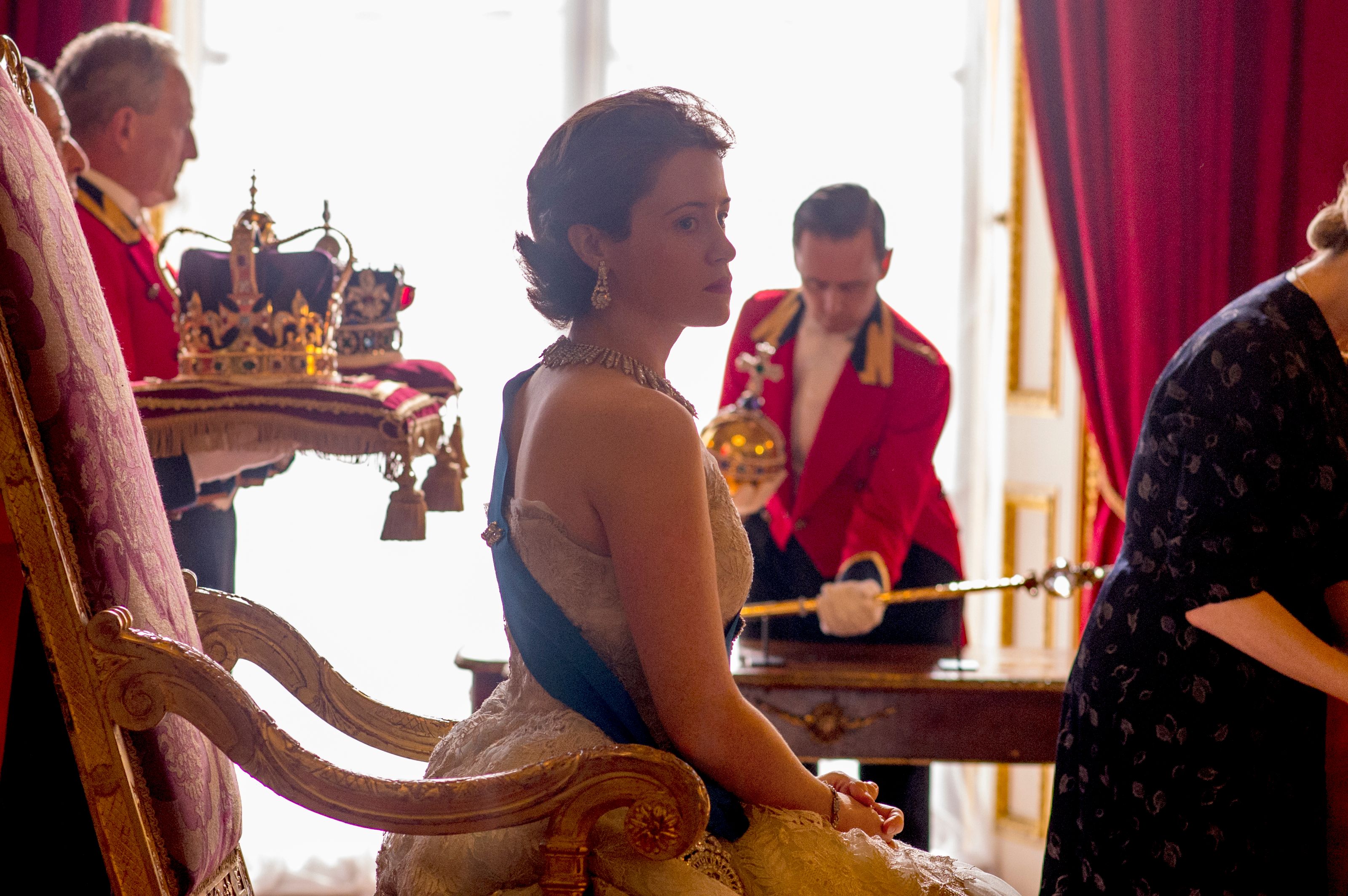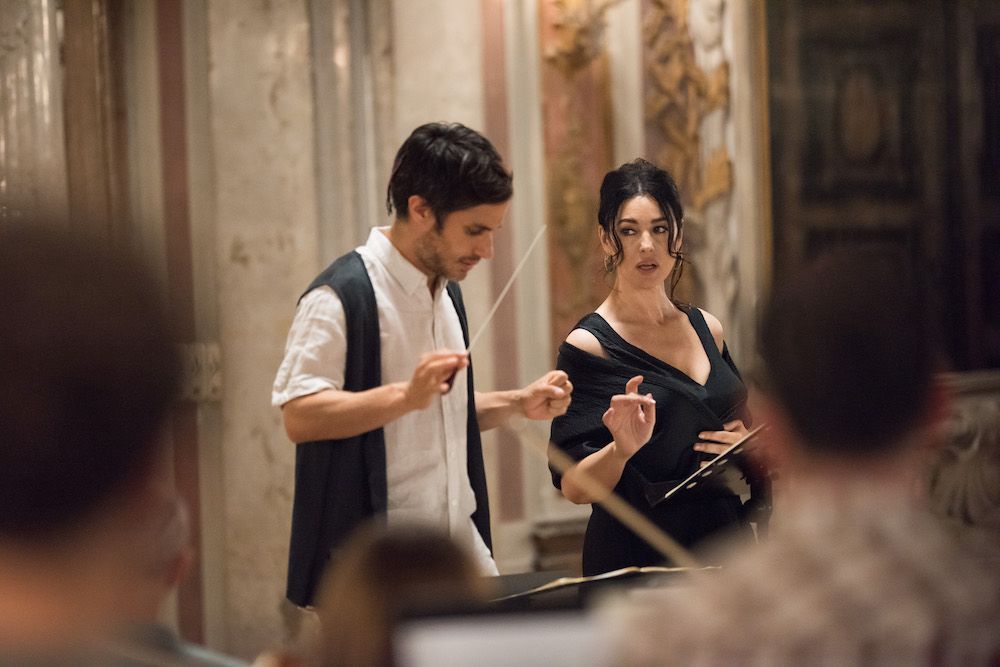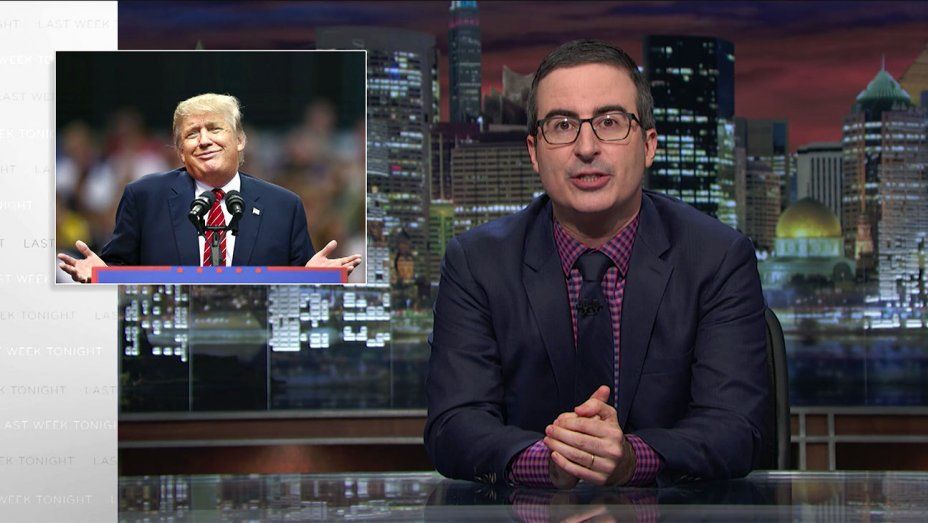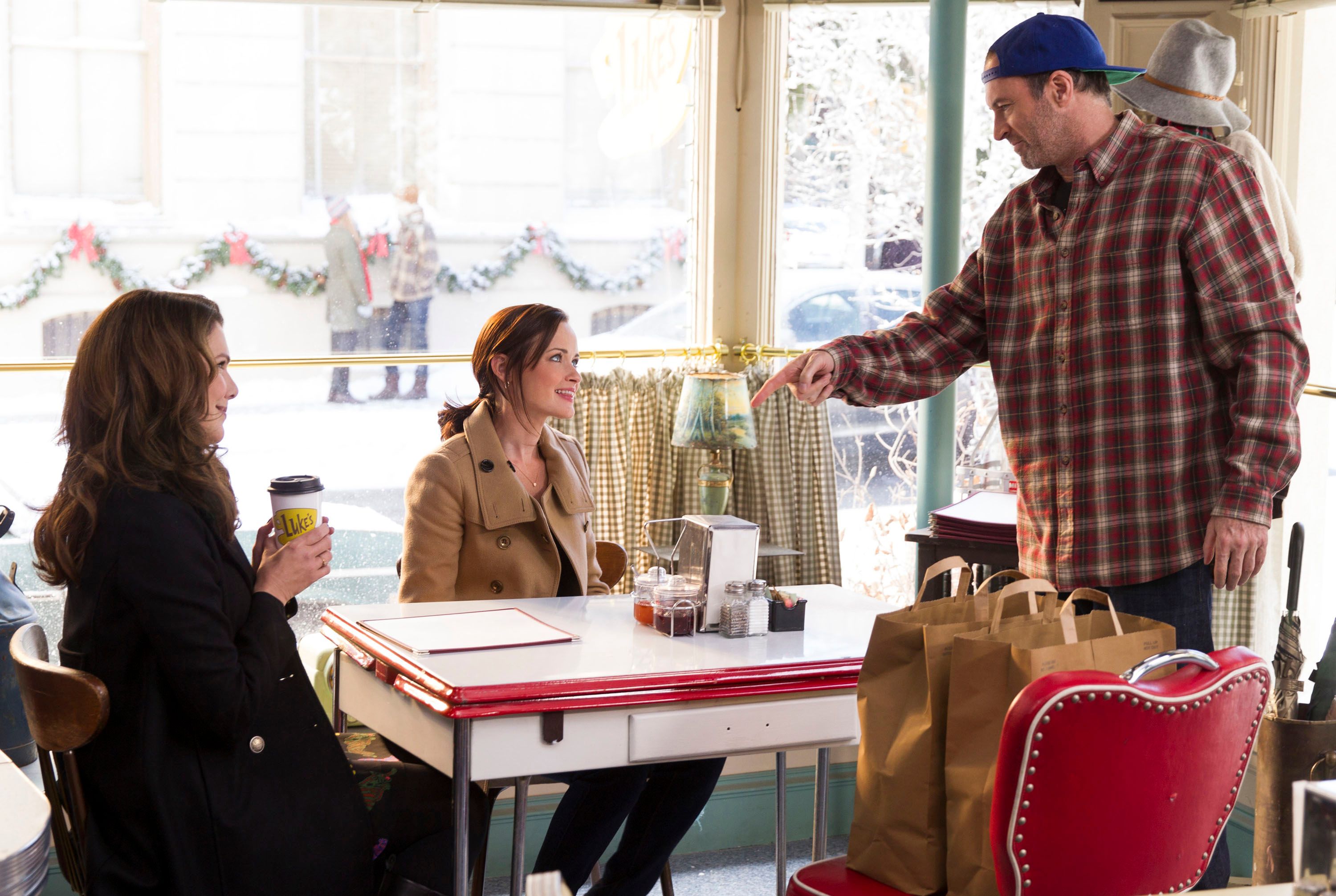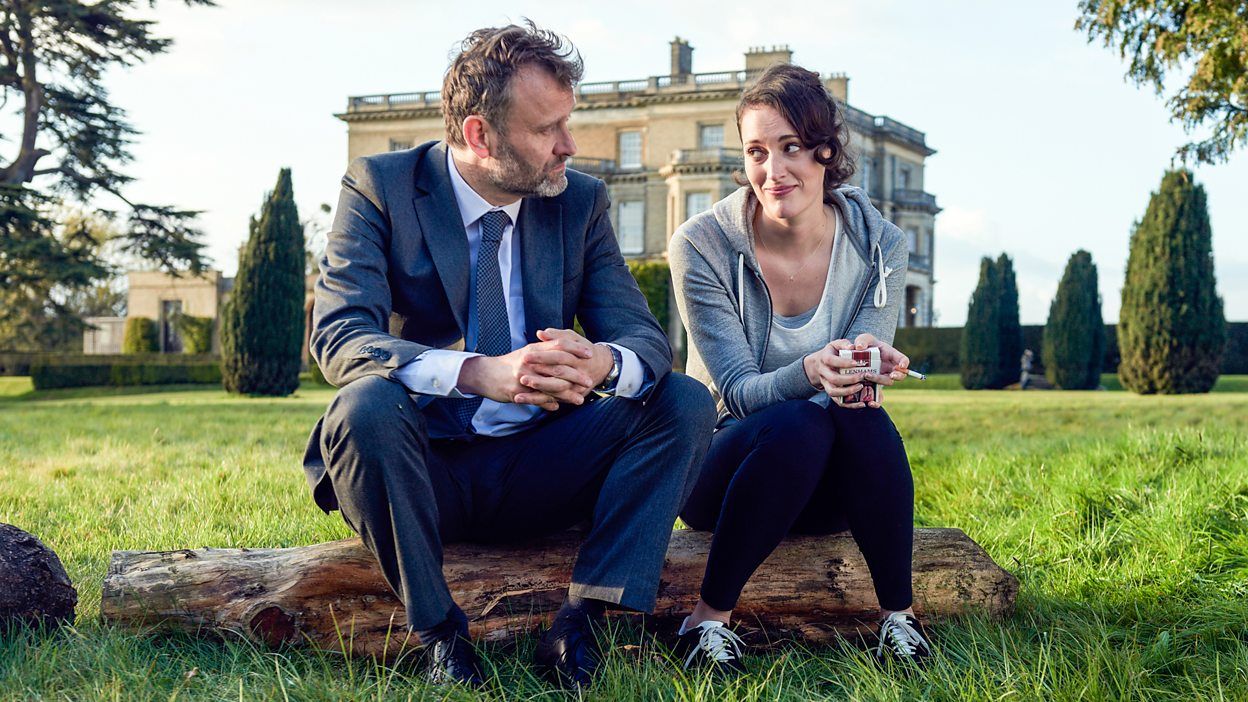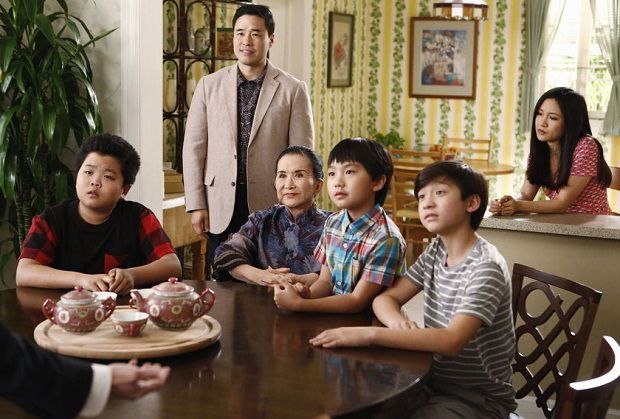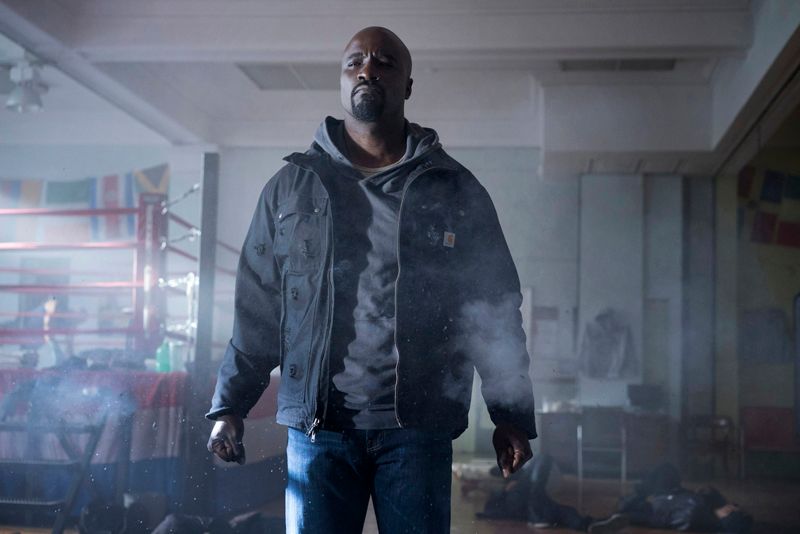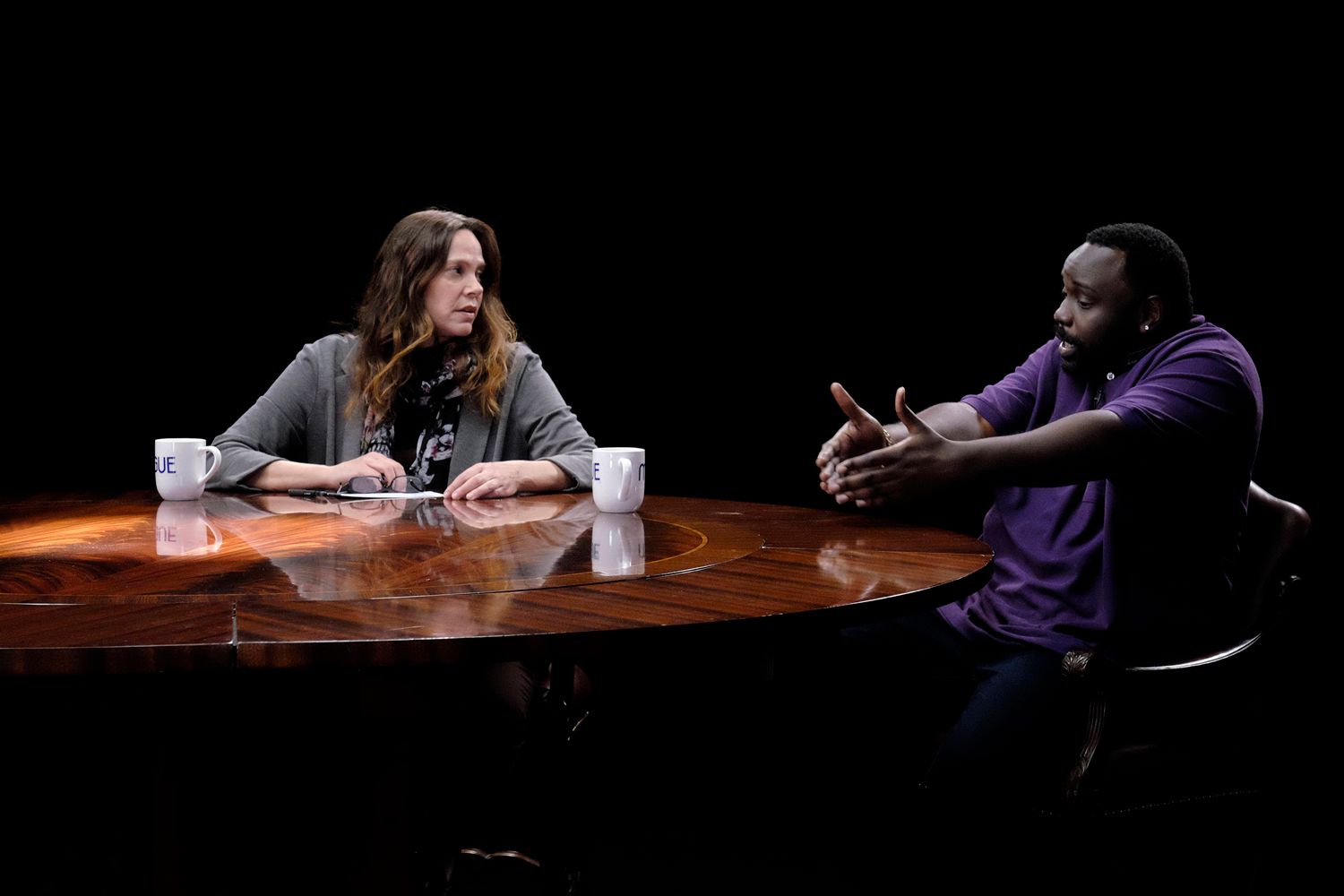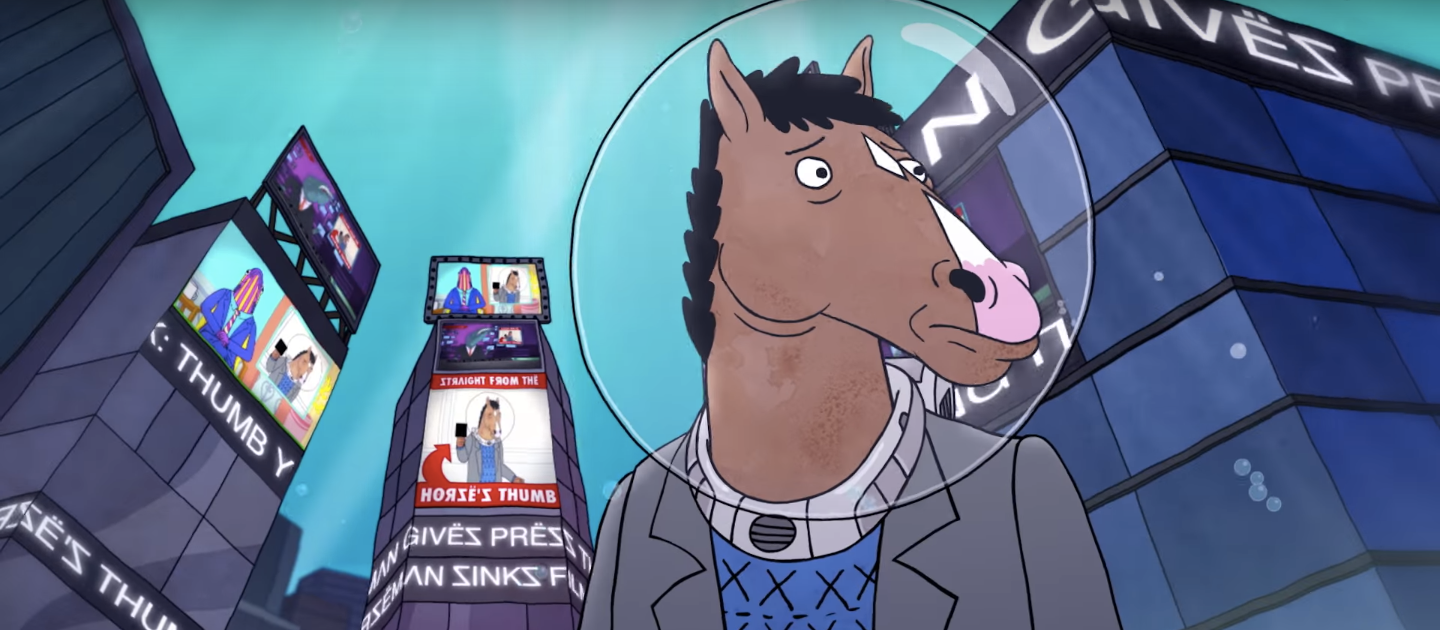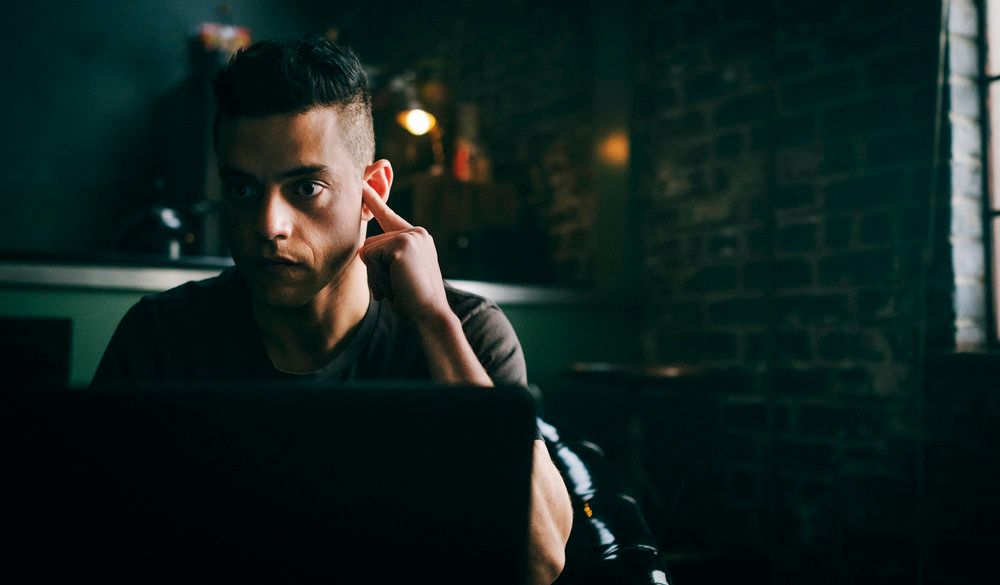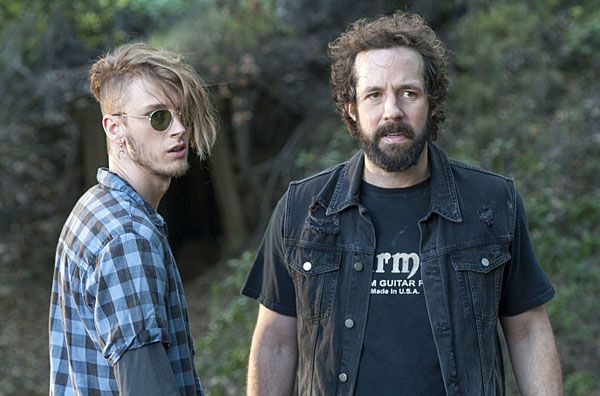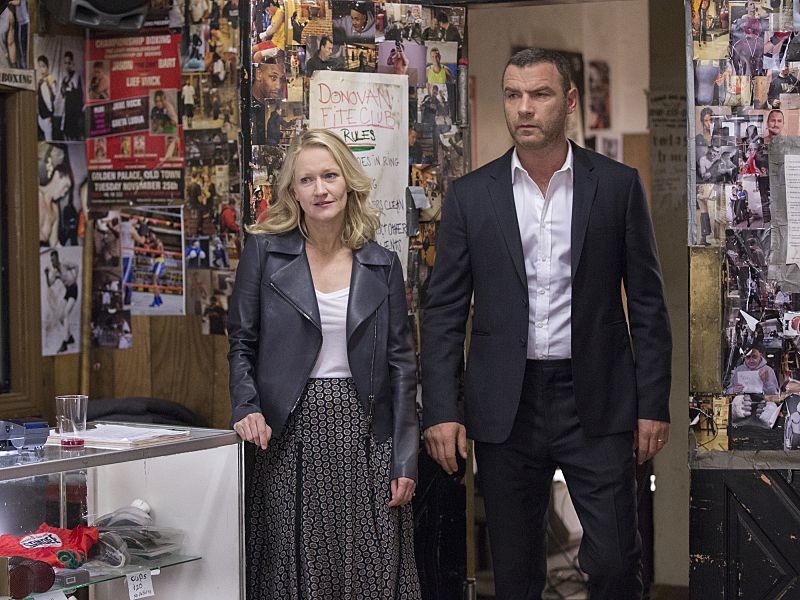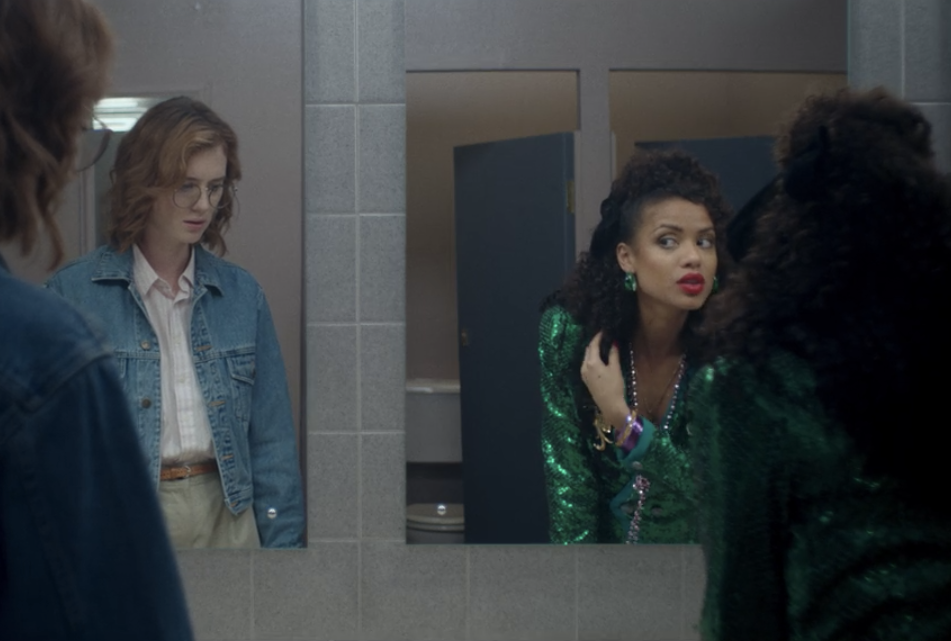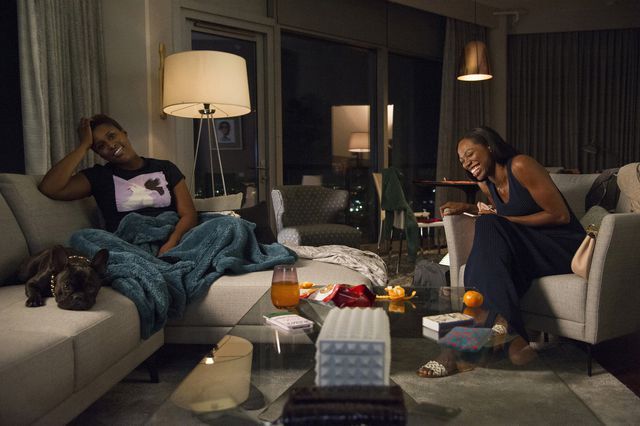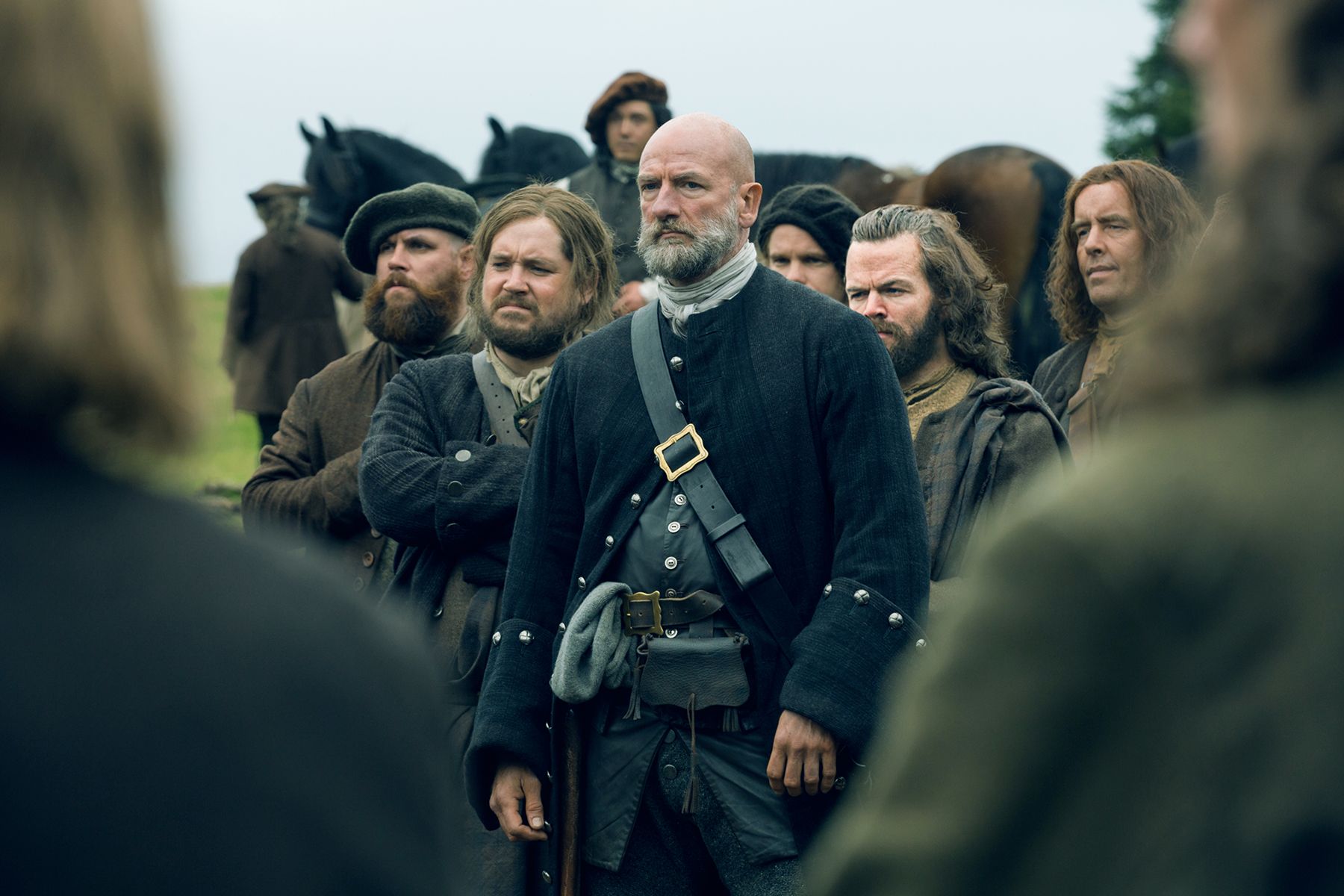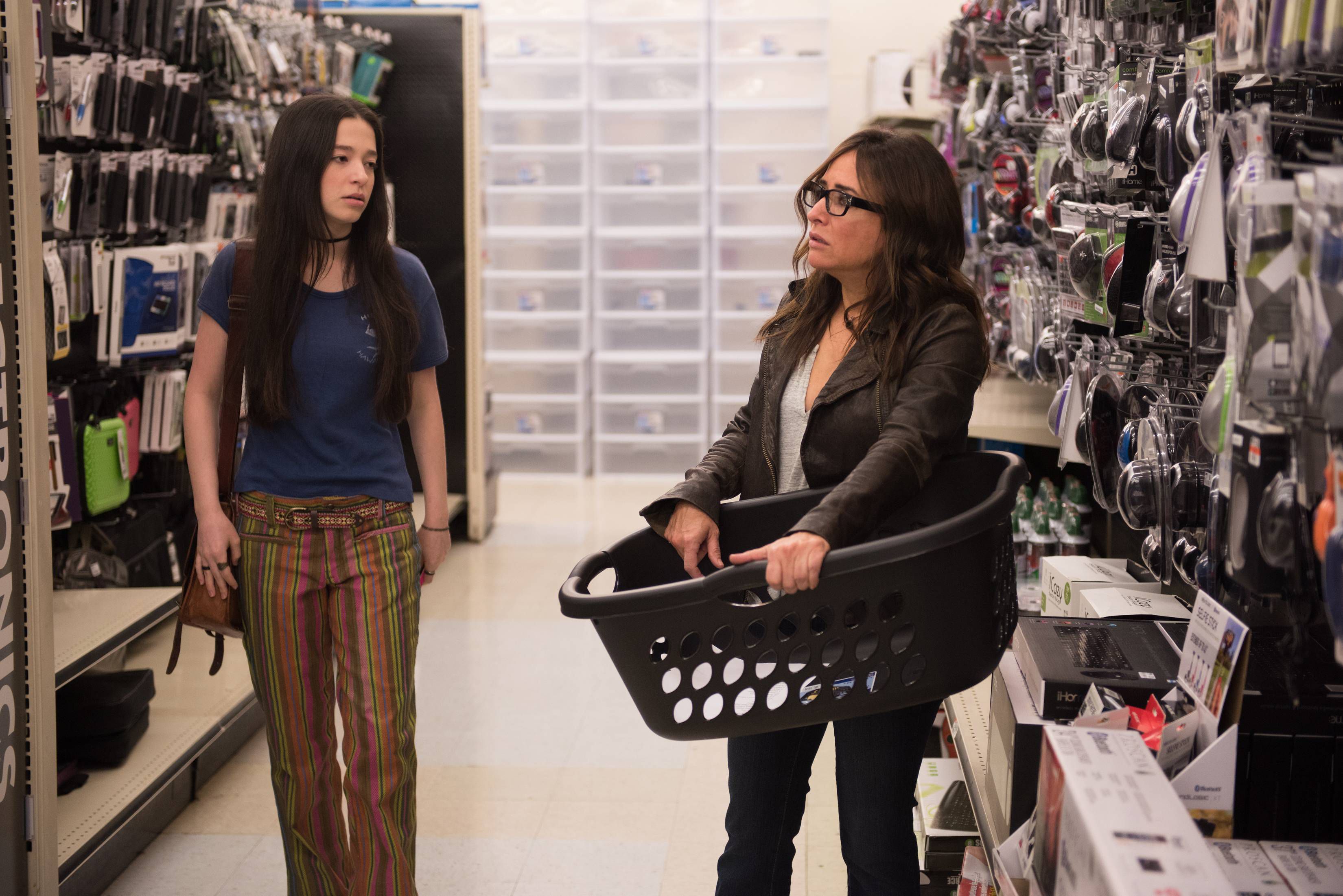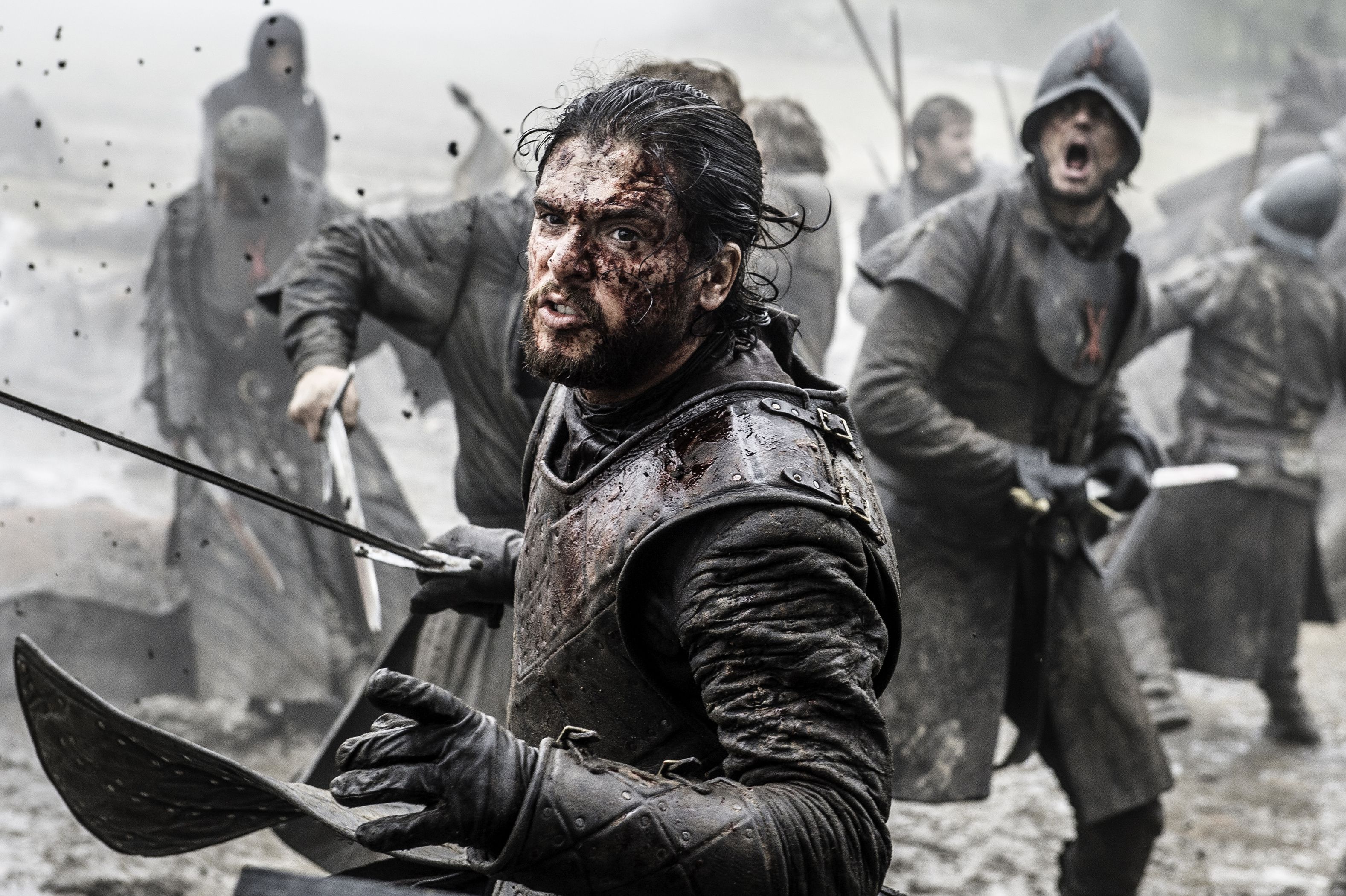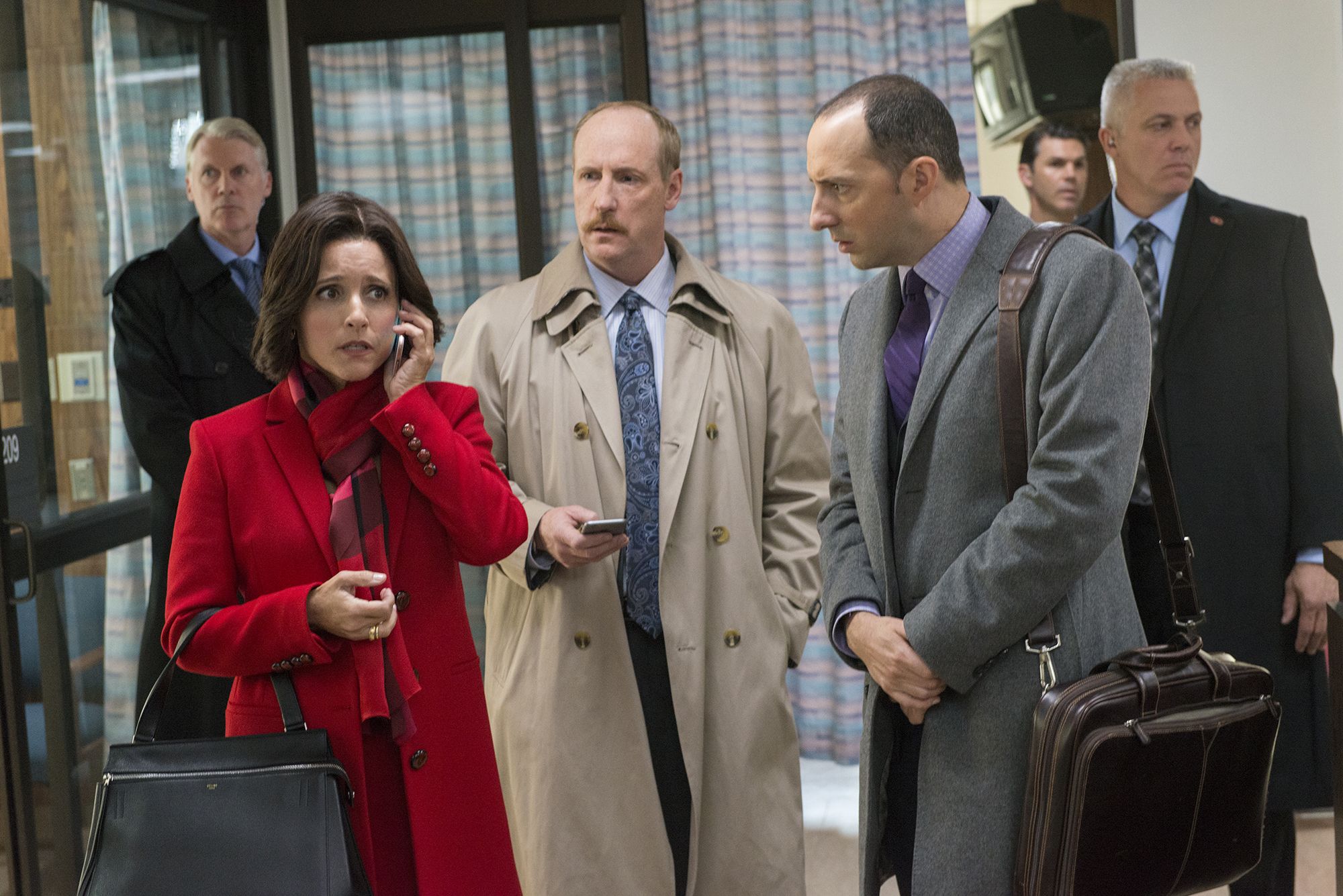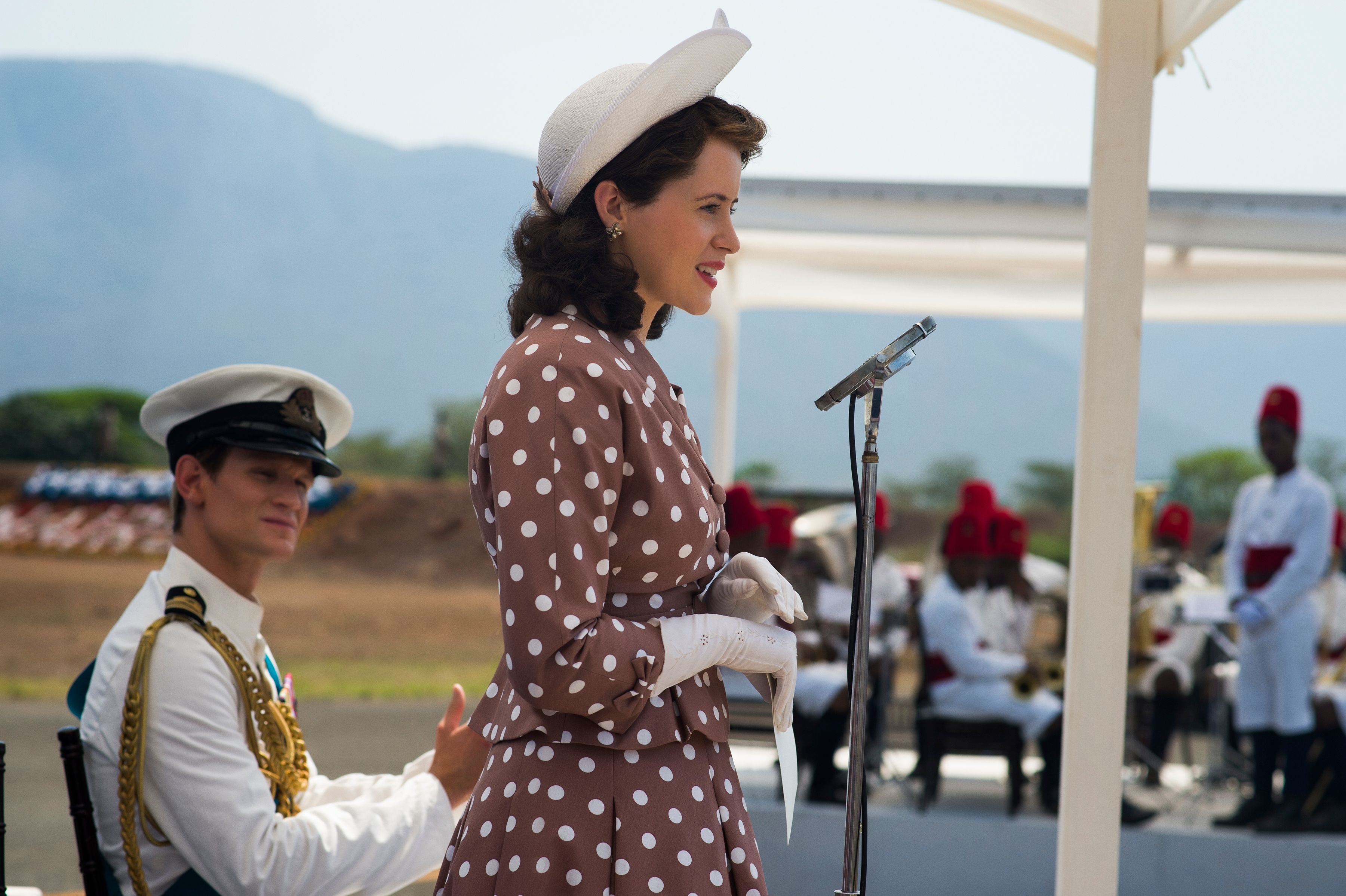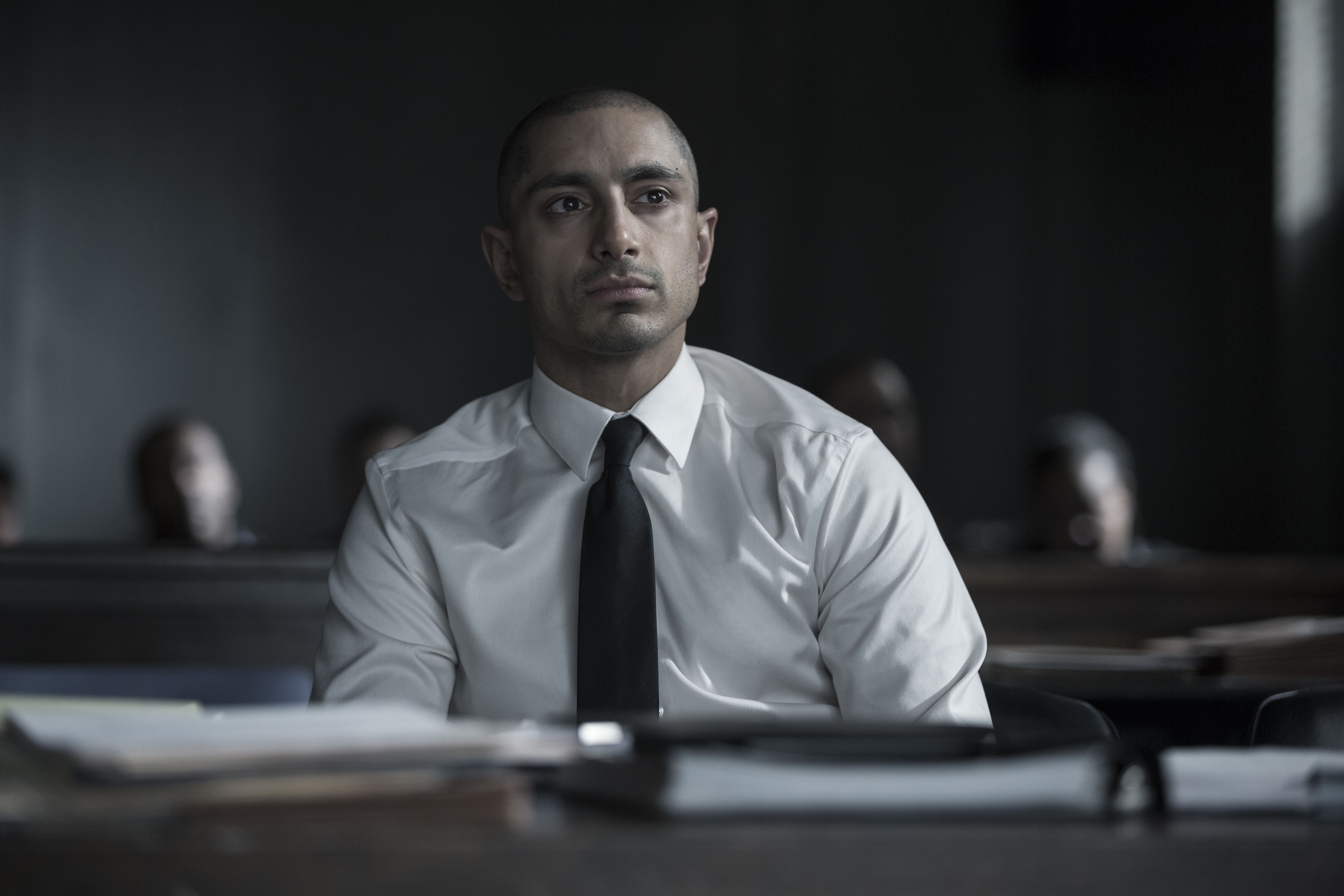[For more of Collider's Best of 2016 lists, click here]
Part 2 of our countdown for the Best TV Episodes of the year kicks off around June of 2016, and it's interesting to note that so many of our picks include one writer/director, or that a writer/director is also a show creator. Maybe it's that special ingredient that makes some of these episodes truly outstanding, or maybe it's something else. Regardless, below you'll find our list of the most outstanding hours (or half hours) of television this year, and if you haven't caught up with a particular show you may want to skip it because of spoilers.
Felt we missed your favorite? Be sure to add it in the comments. And if you missed Part 1, you can find it here.
The Crown Season 1: “Gelignite”
Writer: Peter Morgan
Director: Julian Jarrold
Sometimes there is a single episode that truly sums up its show, and “Gelignite” was absolutely that for The Crown. One of the year’s best series, The Crown takes us inside Buckingham palace to follow the rise of Queen Elizabeth II (Claire Foy) and what that kind of meteoric appointment means for a young woman. In “Gelignite,” Elizabeth is approached by her younger sister Margaret (Vanessa Kirby) about marrying Peter Townsend (Ben Miles), a well-respected Captain and long-time friend of the royal family. While Elizabeth is initially supportive of her sister and tries to remain so, Townsend is tinged with scandal — he’s divorced, something that just caused the abdication of a King. The hour is an agonizing progression of Elizabeth realizing first that she cannot give her sister what she wants, and then ultimately, that she may have her own motivations for wanting to banish Peter (because he is overshadowing her in the press, perhaps?) It’s deeply complicated but a perfect encapsulation of the series, where Elizabeth is often at war with herself. But as her grandmother advised, “the crown must always win.” Here it does, but we also see its personal cost. — Allison Keene
Mozart in the Jungle Season 3: “Not Yet Titled”
Writer: Roman Coppola
Director: Roman Coppola
Mozart in the Jungle continues its tradition of having one experimental episode per season with “Not Yet Titled,” which was shot as a short documentary by the character Bradford Sharp (Jason Schwartzman), as the New York Symphony — at the behest of their maestro Rodrigo (Gael Garcia Bernal) — plays at Riker’s Island Prison. The documentary format is a perfect way to convey the event, not only because it satirizes the pretension of Bradford’s designs for it, but also because it allows for one-on-one interviews with the characters and with prisoners, who react in sincere, moving ways to the symphony’s performance. The episode makes sure to stay sharp so that it doesn’t ever get sentimental, but it also allows the music to speak, something show always does wonderfully. Ultimately it’s an episode that emphasizes the accessibility of classical music, if you drop your preconceptions and just open yourself up to something different. — Allison Keene
Last Week Tonight: “President-Elect Trump”
Writer: Tim Carvell & Dan Gurewitch
Director: Jim Hosinski
Not long after the nation realized that Donald Trump, a thin-skinned racist and proud misogynist, would be our next President, the articles started rushing in, looking for someone to blame…other than the Electoral College and, ya know, racists or people who don’t mind racism. Those who wanted to take it easy on people who either embraced or willfully ignored the very real dangers of giving Trump presidential power quickly turned to the “snotty” humor of liberal comedians like John Oliver and Seth Meyers, and their inability to reach out too more moderate and right-leaning audience members.
That’s cute and all, and there might even be a modicum of truth to the criticism, but it’s not like Oliver and Meyers weren’t trying to reach out to those who hold conservative views. Oliver, in particular, focused on issues that affect the poor first and foremost, a group which – surprise! – does end up including a lot of minorities. When he was talking about such evils as Opioid addiction and multi-level marketing, however, he didn’t speak in terms solely about race or gender or sexuality. He talked about how they affected everyone.
So, when he took the stage for his final episode of the season, in which he attempted to come to terms with the despair of Trump’s victory, he was speaking to everyone, even those who might not realize how bad his ascension will prove to be for those who live in poverty or close to it. And when he ended the episode with a big fuck-you to a year of inexplicable rampant tragedy, he offered a small bit of catharsis. The release of his factual counterpoints to all things Trump is only overwhelmed by the fury that Oliver is barely capable of keeping at bay. - Chris Cabin
Gilmore Girls: A Year in the Life: “Winter”
Writer: Amy Sherman-Palladino
Director: Amy Sherman-Palladino
Few series were more highly anticipated than the return of Gilmore Girls on Netflix after 9 years off the air. And while the return was largely uneven with a fairly controversial ending (one that felt like it did a great deal of disservice to Alexis Bledel’s Rory Gilmore), the opening, “Winter,” felt like home. Written and directed by the show’s creator Amy Sherman-Palladino (her husband Daniel wrote and directed the next two installments), it re-introduced the characters and places of Stars Hollow in ways that felt both fresh and familiar. In later episodes, the show became increasingly surreal and often dragged, but “Winter” was whimsical and, ironically, warm, something that has always defined Gilmore Girls. It was a grand introduction to what was, ultimately, a mixed affair. — Allison Keene
Fleabag Season 1: “Episode 4”
Writer: Phoebe Waller-Bridge
Director: Harry Bradbeer
One of the biggest surprises of the year, Fleabag (a six-part British series that airs in the U.S. on Amazon) subverted all of the tropes of a show about a young woman’s dating life in London by giving it a achingly dark undercurrent that wasn’t fully revealed until its first season finale. But in “Episode 4” we got our first solid glimpse of it, when Fleabag (Phoebe Waller-Bridge) and her sister Claire (Sian Clifford) go to a female-only silent retreat. It’s a terrible idea and the two are extremely ill-suited for it, but it brings out some important truths about their relationship. But even more impressive was a scene where Fleabag sits with a man (who was a loan officer who rejected her in an earlier episode), both of them on the run from their respective retreats, and they reveal their deepest fears in simple, incredibly real terms. It was an exceptionally raw moment, somehow both funny and bleak, and one that solidified Fleabag as one of the best shows of the year. — Allison Keene
Fresh Off the Boat Season 3: “Coming from America”
Writer: Nahnatchka Khan
Director: Nahnatchka Khan
Fresh Off the Boat went to Taiwan to film its Season 3 premiere, and the result was a hilarious cultural mashup that showed how much the Huangs had changed since coming to America, yes, but it also highlighted the show’s weirder and more surrealistic side. The rivalry between Louis (Randall Park) and Gene (Ken Jeong) worked well as a way to convey unique cultural juxtapositions without feeling like either really wins out, and the show also continued to make its nostalgic moments feel organic, as Eddie (Hudson Yang) tries to fax his girlfriend while he’s away. With some of the sharpest jokes and best sequences of the entire third season so far (especially a joke where Ian Chen’s Evan demands to be taken to a U.S. Embassy), Fresh Off the Boat’s trip to Taiwan was an excellent gamble for one of the most reliable comedies on television. — Allison Keene
Luke Cage Season 1: “Step in the Arena”
Writer: Charles Murray
Director: Vincenzo Natali
Like all too many fans of Marvel on Netflix, my initial obsession with Luke Cage ended up dithering hard in the final episodes, as Diamondback became the main villain and the show became a bit untethered from its compelling community-based narrative. The first half of the season, however, remains a promising, occasionally breathtaking push toward audacity and ambition in Marvel adaptations, and the best episode was, surprisingly, Luke’s origins story. Here, the emotional connection between Mike Colter’s hero and his late wife is conveyed with stunning clarity, as are his experiences in jail that both led to his powers and first introduced him to villains like Shades. Cut between an attempt to save a neighbor from under a pile of rubble, which could out him as a superhero, and his time in jail, the episode earns it’s Gang Starr-supplied title as this is the first time where the series feels like it’s firing on all cylinders, prepared for an onslaught of action and melodrama that never quite arrives in full. - Chris Cabin
Atlanta Season 1: “B.A.N.”
Writer: Donald Glover
Director: Donald Glover
Atlanta’s entire first season was unique and worthy of praise, but “B.A.N.” stood out in particular as a stretching of boundaries, and it was only one of two episodes directed by creator and star Donald Glover (though Hiro Murai deserves a lot of credit for setting the visual tone of the series). The entire episode focused on Paper Boi (Brian Tyree Henry) as a guest on a fictional PBS-style talk show called Montague, and it was a frank and honest discussion about black culture and, more surprisingly, the trans community. Henry was outstanding in this episode as the the beleaguered and frustrated Paper Boi, who upended the conversation and unexpectedly found common ground, creating a worthwhile discussion that never once felt preachy. “B.A.N.” also featured several fake commercials that were hysterical, increasingly surreal, and incredibly culturally specific. The most affecting one turned a kid’s cereal cartoon in a fraught comment on Black Lives Matter, all of which perfectly mirror Atlanta — funny, deep, dreamy, haunting, and smart as hell. — Allison Keene
BoJack Horseman Season 3: “Fish Out of Water”
Writer: Elijah Aron, Jordan Young
Director: Mike Hollingsworth
Amongst one of the great seasons of animated television to ever see the light of day was this act of pure wonder, in which Will Arnett’s washed-up sitcom star and so-to-be Oscar-winner for Secretariat finds himself lost, underwater, during the Pacific Ocean Film Festival. The obvious link here would be Lost in Translation, but the episode intensifies the feeling of isolation and alienation that were coming in waves in Sofia Coppola’s masterwork. The incapability for us to understand anything that anyone says allows for grand flourishes of storytelling invention, as well as some of the most dazzling images that the routinely brilliant series has ever come up with. What would have been a gimmick on almost any other show ends up highlighting the sense of narrative detail that’s packed into each from of the show, beyond the cutting, rhythmic dialogue. And like any great imaginative coup, it’s given a backbone by feelings of strong regret, exhaustion, curiosity, and that feeling of being lost for a good reason, even if you don’t understand that reason yet. - Chris Cabin
Mr. Robot Season 2: ”eps2.4_m4ster-s1ave.aes"
Writer: Adam Penn
Director: Sam Esmail
Though Mr. Robot’s second season struggled with pacing and even its own sense of story (getting bogged down by a desire for another big twist), “Master-Slave” jolted viewers awake with Elliot’s (Rami Malek) mental journey through a twisted sitcom world of the 80s and 90s. It was funny, sad, and even a little scary (in that sort of lightly horror-filled “Too Many Cooks” sort of way, especially with the teases it gave of Tyrell Wellick — particularly when it seemed to confirm that Elliot murdered him). It was unique and unexpected, and initially was only available to see if you watched the episode live.
But “Master-Slave” also featured a great scene between two of the show’s women, Angela (Portia Doubleday) and Dom (Grace Gummer), and successfully created several excellent scenes full of tension for Angela and she attempted to help fsociety with an FBI hack. The show also traded in some genuinely emotional moments in a flashback with Elliot and his father (Christian Slater), and it explained the significance of the moniker “Mr. Robot.” In an uneven season where individual episodes had great moments but not always great full hours, “Master-Slave” was a shining example of how great the show can be. — Allison Keene
Roadies: “The All Night Bus Ride”
Writer: Cameron Crowe
Director: Sam Jones
Roadies had a rough first season, and I gave up on it multiple times … which means I also kept going back to it. I wanted it to be better, to get better, and it never really did. Eventually, Showtime cancelled it, which is a surprising move for such a high-profile series. But one episode did stand out as being a pretty great one, and that was “The All Night Bus Ride,” where for most of the episode the gang sat around and listened to Phil (Ron White) tell the story of Lynyrd Skynyrd and his part in it.
The rest of the hour was, like the rest of Roadies, was pretty unremarkable. But for that time we spent with Phil, it was genuinely spellbinding. It felt deeply personal for Cameron Crowe, which it clearly was — he had his own ties to Lynyrd Skynyrd, and his writing about Ronnie Van Zant was so deeply emotional and it resonated through the rest of Roadies’ missteps. Through Sam Jones’ direction, the Synyrd stories felt like a look into what Roadies could have been, and what Almost Famous really was. There was singing, there were stories, there was real, sincere emotion and an extended montage of Skynyrd playing a legendary performance when they opened for the Rolling Stones. It’s the rock show we deserved, but not the one we ultimately got. — Allison Keene
Ray Donovan Season 4: “The Texan”
Writer: David Hollander & Sean Conway
Director: Tucker Gates
Ray Donovan’s fourth season was not its best, but “The Texan” started off with a few scenes that — for a little while, anyway — reminded us that this isn’t always a dark and dour show. It’s also a good example of how drama can come from joy and happiness just as strongly as it can from violence and sorrow. “The Texan” is an episode that not only features Ray (Liev Schreiber) and Micky (Jon Voight) happy and getting along for a little while, but it also has a scene where Ray challenges his son in playing a video game, and Abby (Paula Malcomson) joins in. Yes, the Donovans were actually happy for a few minutes in this episode, and it was an incredibly fun and uplifting thing to witness.
“The Texan” also includes Ray’s ill-conceived idea to drop Conor off in the barrio to teach him a lesson about privilege, as well as some history with the Texan and Ezra which deepens Ray’s understanding of the forces that shaped his time in LA. But really it all comes back to this one scene, to that happiness, and to that example of why we love the Donovans and keep coming back to find out more about their story. We just need more of this part, too. — Allison Keene
Black Mirror: "San Junipero"
Writer: Charlie Brooker
Director: Owen Harris
"San Junipero" deserves accolades for being the first Black Mirror episode that was fully thought out and didn't lean (too) heavy on an empty sort of political cynicism that seemed to drive the first two seasons of the show. Where so many other episodes plainly showed technology as evil and inevitable, Owen Harris' episode, led by stirring, yearning performances from Mackenzie Davis and Gugu Mbatha-Raw, sees the inevitability but sees both the good and the bad in how technology will effect the notion of death, religion, and love. In the eponymous town, Davis' loner finds something exhilarating with Mbatha-Raw's party girl, and the episode doesn't try to dampen that feeling with skepticism about Where We're Going As A Society. At it's heart, the episode is a love story for the next generation of tech-savvy secularists, and Charlie Brooker's script expertly drops hints and bits of odd lingo that lead us to the technological revelation of the episode's final quarter. The ending could very easily be seen as a horror show, like something out of one of the darker scenes in The Matrix, but there's also something liberating about the world of "San Junipero," and for once, Brooker doesn't try to empty that element of all feeling. - Chris Cabin
Insecure Season 1: “Messy as Fuck”
Writer: Issa Rae
Director: Cecile Emeke
This is another series where it seems pointless to pick just one episode, but “Messy as Fuck” was definitely the episode that hooked me on Issa Rae’s exquisite comedy series. Rae’s character’s indecision and carelessness isn’t cute, as we see in her unwillingness to talk to Jay Ellis' Lawrence at the pharmacy/convenience store but want to use his discount at the register. Similarly, for all of best friend Molly’s (Yvonne Orji) confidence, take-charge attitude, and sense of organization and self-presentation, her sense of control has led her on a disastrous line of first dates; in comparison, a chance meeting on a street while walking her dog glows with unforced sweetness. Work woes and quietly devastating observations of L.A. – such as when the gang member corrects his young son’s pronunciation in front of Lawrence – are key to Insecure’s triumph, but at the heart of it, the series is about Molly and Issa’s intimate, clattering perspectives on life, a life dominated by control versus a directionless but free life. Very few episodes of the series so clearly demonstrated how these ideologies both clash and co-mingle as “Messy as Fuck.” - Chris Cabin
Outlander Season 2: “Prestonpans”
Writer: Ira Steven Behr
Director: Philip John
“Prestonpans” was a beautifully rendered episode of Outlander that rivals Game of Thrones in terms of brutality and emotional weight. Smartly filmed in a way that suggested a massive battle without breaking the budget, the fog of war (literally) also revealed a myriad of horrors as the Highlanders’ charged against the Redcoats. The historical battle went in favor of the Scots that day, but there were casualties that weren’t readily telegraphed, and once they took place they were devastating both onscreen and off. Outlander is like a family, and when anyone is lost it sends reverberations. But even before that, Philip John’s camera work and choreography of the fight scenes was truly breathtaking, and an episode that continues to haunt months after it aired. — Allison Keene
Better Things Season 1: “Sam/Pilot”
Writer: Pamela Adlon & Louis C.K.
Director: Louis C.K.
It’s hard to pick just one episode of Pamela Adlon’s uproarious and wise series to single out for commendations. Like long-time collaborator Louis C.K.’s magical Louie, Better Things considers the surreal and very real feelings and experiences of being a single parent in a big city. Adlon’s city is Los Angeles, and were the series only about the day-to-day arguments, compromises, and intimate actions of a working actress, the series would still be a tremendous work of self-examination and self-expression. But as we meet her in the superb pilot, she’s as much a struggling mother as she is a trained performer, and the three daughters she cares for are as much unique characters as they are reflections of distinct, complex types of identity, even femininity. Dealing with a pothead eldest who wears next to nothing around the house, and lets boys over after dark, as well as a radical feminist-marxist in the making, Adlon’s self-reflective cypher, Sam, shows exhaustion, anger, wisdom, toughness, and even something akin to hope. The episode’s most magical moment comes when, with a laundry basket in her hands, Adlon’s stressed mom receives a text from a lover and she lights up, as does the soundtrack. As much as C.K., Adlon needs to see the pain, the ugliness, the embarrassing, and the mundane elements of life before she can fully appreciate the sweetness. - Chris Cabin
Game of Thrones Season 7: “Battle of the Bastards”
Writer: David Benioff and D.B. Weiss
Director: Miguel Sapochnik
If you watch Game of Thrones, well, the inclusion of this episode speaks for itself. (Though “The Winds of Winter” deserves a definite honorable mention). It was a thrilling hour of television that contained some well-earned and genuine triumph, and acted as a true song of ice and fire. Daenerys (Emilia Clarke) burned the slaver masters’ fleets, and forged an unlikely but fantastic alliance with the Greyjoys. At Winterfell, there was the emotional horror of Ramsay’s (Iwan Rheon) final terrible act against the Starks, as well as that heart-stopping moment when Jon (Kit Harington) was nearly crushed and suffocated by Ramsay’s forces. But Sansa’s (Sophie Turner) forward-thinking rogue movie brought relief from Littlefinger (Aidan Gillen) and the Vale. Wun Wun had his moment of victory before death, and both Sansa and Jon (though particularly Sansa) got to exact their revenge on Ramsay. It was exciting, uplifting (even in its horror), and just in terms of choreography and payoff, probably the most outstanding hour of TV this year. — Allison Keene
Veep Season 5: “Mother”
Writer: Alex Gregory & Peter Huyck
Director: Dale Stern
“Mother” might have been Veep’s darkest episode ever, except that Julia Louis-Dreyfus walked an incredible tightrope to keep it from going too far into the abyss. Selina’s poll numbers were down, but she’s told her mother’s passing (which she can hasten by telling doctors to pull the plug) could supply her with a “death bump.” But Selina also has some extremely person and private moments with her mother that speak to a deep pain and a longing for a loving parent she never had, feelings so briefly shown as a flicker across Selina’s face or in the gentle caress she gives her mother’s hand. Ultimately, a negative result in a recount means that Selina’s hold on the Presidency is nearly lost. At her mother’s funeral service she weeps, not for her mother, but for her lost political ambitions. It is a wickedly cynical episode, but one that is so layered and nuanced and full of gallows humor that it is a masterful exercise in both dark comedy and restraint. — Allison Keene
The Crown Season 1: “Windsor”
Writer: Peter Morgan
Director: Philip Martin
One of the most disappointing faults in The King’s Speech is it’s simplified, even vilifying, attitude toward former King Edward VIII, who abdicated his thrown to marry the woman he loved, who was a divorcee. In this, Netflix’s wholly undervalued The Crown acts as a thrilling corrective and gives a full vision of the first and only Duke of Windsor in “Windsor.” It helps that the great Alex Jennings, who did a similarly angry yet vulnerable version of Prince Charles in The Queen, plays Edward, who arrives to mourn his brother, King George VI, and help brace his eldest niece for her new role. Working from a intuitive script by Peter Morgan, director Philip Martin makes the Duke of Windsor both a hopeless, romantic traditionalist and a furious, sharp-tongued dissenter of the Royal family, and Jennings savors every nasty word and silent, heavy pause of doubt or hurt. There’s plenty of Claire Foy, who does moving, daring work as the Queen, as well as John Lithgow’s wonderful Churchill, but this episode is owned by an outsider looking in on the world he left behind, with both relief and a shaking, unspeakable sadness.
The Night Of: “The Beach”
Writer: Richard Price
Director: Steven Zaillian
Though The Night Of isn’t a show that I thought truly lost its way by the end of its short, limited run, it may have had one of the best premieres of all time. Knowing that this was a show about a murder and a trial, every single move we saw Naz (Riz Ahmed) make was excruciating. Every little mistake he made, the wrong people he talked to, the items he touched after he saw the crime had happened, were almost too much to bear. Knowing that each moment could come back and implicate him — which is exactly how it played out in court — was the punishment for omniscience. But along with a narrative of the crime and a slew of potential suspects, “The Beach” also expertly introduced what was instantly clear as being the show’s greatest asset: John Turturro as Naz’s reluctant, world-weary and eczema-blighted attorney. And while the rest of the season wavered in logic and quality as it progressed, Turturro’s character was a steady joy, who got even better in his rare moments of personal, well-earned triumph.— Allison Keene


